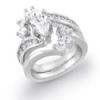|
ESL Forum:
Techniques and methods
in Language Teaching
Games, activities
and teaching ideas
Grammar and
Linguistics
Teaching material
Concerning
worksheets
Concerning
powerpoints
Concerning online
exercises
Make suggestions,
report errors
Ask for help
Message board
|
ESL forum >
Techniques and methods in Language Teaching > Use of Neither
Use of Neither
|

Ruwayda37

|
Use of Neither
|
|
Fill in using a possessive adjective:
Neither Jack nor Jane has ..... book.
Thanks in advance. |
8 Sep 2020
|
|
|
|
|
|
|
|

esl-teacher

|
|
I think it can�t be has or books because you are talking about neither of them, so it has to be Neither Jack nor Jane have their books. |
8 Sep 2020
|
|
|

Ruwayda37

|
|
Shouldn�t we use a singular verb if the last subject joined by neither .. nor ... is singular? |
8 Sep 2020
|
|
|

douglas

|
|
Typically yes, but for normal use we use the plural because the subjects mixed gender ( both male and female). If they were same gender we could use: Neither Jane nor Paula has her book. Note:Their as a singular pronoun is becoming more accepted in these days of gender neutral/ gender inclusive writing and speaking. |
9 Sep 2020
|
|
|

ninon100

|
|
Yes, we should use a singular verb. HAS, not have, because the last subject is singular. BUT: The exercise is incorrect in itself! I could also say Neither Jane nor Jack has MY/YOUR/OUR/HIS/HER book. And every single one of them is gramatically correct depending on the meaning. |
9 Sep 2020
|
|
|

douglas

|
|
https://ell.stackexchange.com/questions/132425/their-or-his-or-her-in-a-sentence-using-neither-nor https://en.wikipedia.org/wiki/Singular_they Common use allows for "their" in most cases--it�s been used as singular for along time (even Shakespeare used it that way). |
9 Sep 2020
|
|
|

cunliffe

|
|
Their. Douglas is right and this usage is becoming more and more the norm. |
9 Sep 2020
|
|
|

almaz

|
|
Yes, their is appropriate. And as has already been indicated, singular their is of ancient pedigree; the first recorded use was in the Wycliffite Bible of 1382: "Eche on in þer craft ys wijs" (that þ symbol – �thorn� – represented voiced th in Middle English). On the neither...nor front, I�m with Merriam-Webster�s Dictionary of English Usage: "Neither...nor with two (or more) singular subjects [...] is governed by notional agreement and may take either a singular or a plural verb, as if the writer were imagining it as the negative of �either this or that� or the negative of �both this and that�. When the subjects are plural, or the last subject is plural, a plural verb is expected." |
10 Sep 2020
|
|
|